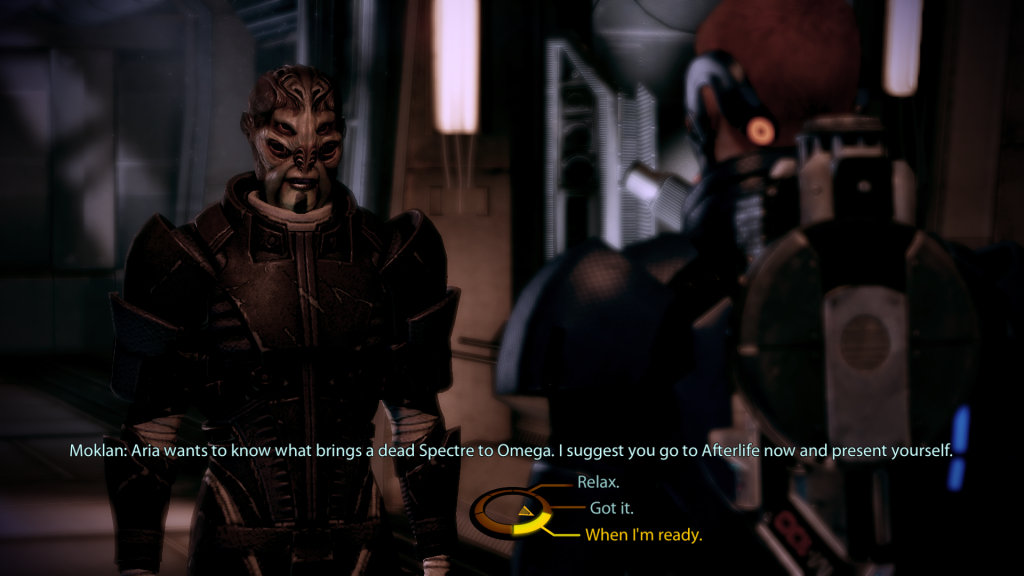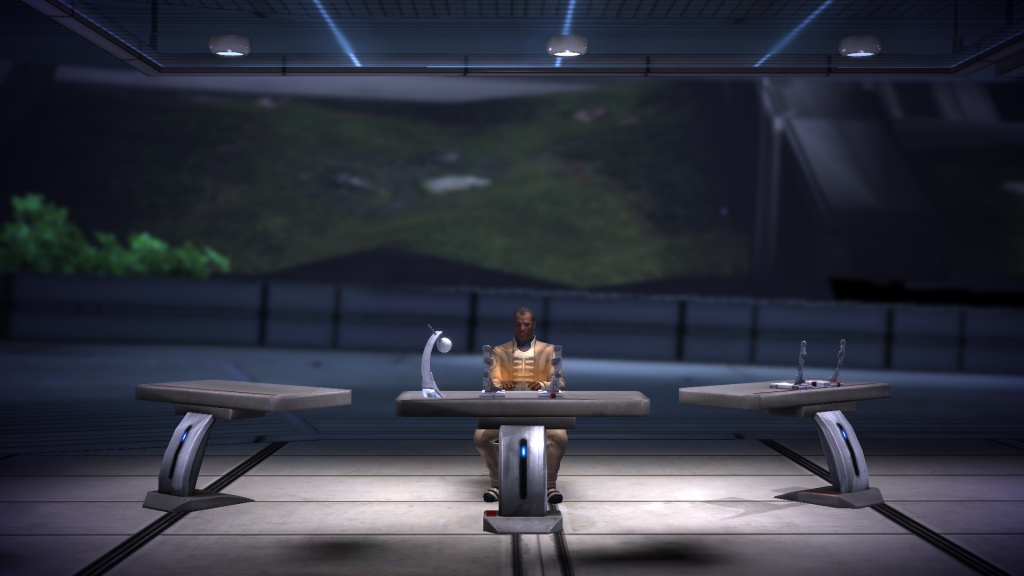Blaugust Post #18
I have to give the Mass Effect series credit for being the first series I played where the morality system isn’t choosing between “Be a Good Guy” or “Kick Puppies”. (Neverwinter Nights and other D&D-based games have been really bad about that, as is Knights of the Old Republic) In Mass effect you’re always the good guy, you might just be a bit of an asshole about it. (You might also kick some puppies.) For those unfamiliar, Mass Effect tracks your decisions as either “Paragon” or “Renegade”, where Paragon is “Compassionate and Heroic” and Renegade is “Apathetic and Ruthless”. These aren’t directly opposed, so you can have a high score in both, depending on your actions.

In Mass Effect 1, these scores determine how many points you can put into Charm/Intimidate, and the resulting value of your Charm/Intimidate skill is what gives you access to particular conversation options. Mass Effect 2 got rid of the Charm/Intimidate skills, in favor of an alternate approach.
The Great Mistake
Mass Effect 2 decided to use your Paragon/Renegade values directly to determine your effective charm/intimidate values. Because Mass Effect 2 is very non-linear, the values required aren’t static. Instead, they’re a percentage of the total number of paragon/renegade points available in the areas you’ve been to. The problem here is that while your scores aren’t mutually exclusive, most of your actions are. Unless you go very hard toward one or the other, you’re likely to find that you can’t pass either Paragon or Renegade checks near the end of the game. (A particularly difficult one is sorting out an argument between two party members, and it’s hard to have this happen any time other than near the very end of the game.)
Playing the game without being entirely dedicated toward either red or blue feels more natural to me, and ME2 punishes you for it. Importing a character from ME1 mitigates this somewhat, as you start with a moderately large bonus to your meters based (roughly) on what they were at the end of ME1. This helps a lot, but isn’t a perfect solution.
Building a Reputation
Mass Effect 3 throws a decent chunk of that out. There’s still no individual charm/intimidate skill, but instead a statistic called “reputation”. Paragon and Renegade are tracked on the same bar, and the total is your reputation. There are also completely unaligned “reputation” points that extend the bar, but preserve your paragon/renegade ratio. Your available choices depend on how much reputation you have. I feel like this is a much improved situation compared to ME2, because your ability to impress people depends, more than anything else, on how much you’ve done. Choosing the “nice” options doesn’t later lock you out of the “jerk” options. This is important, because some people are absolutely worth being a jerk to.
And what fun is it if you can’t indulge, sometimes?



I really like Mass Effect’s morality system. In games with a more traditional good/evil system, I always have trouble going the evil route because it seems like I’m just being a jerk for no reason or gain at all. I enjoy the choice between being practical and pragmatic and being compassionate.
Slightly off topic but… the Paragon and Renegade actions have always given me trouble in the games. During longer bits of dialog I have a tendency to put my controller down, or use one hand to grab a drink and I always find myself scrambling in order to hit the trigger.